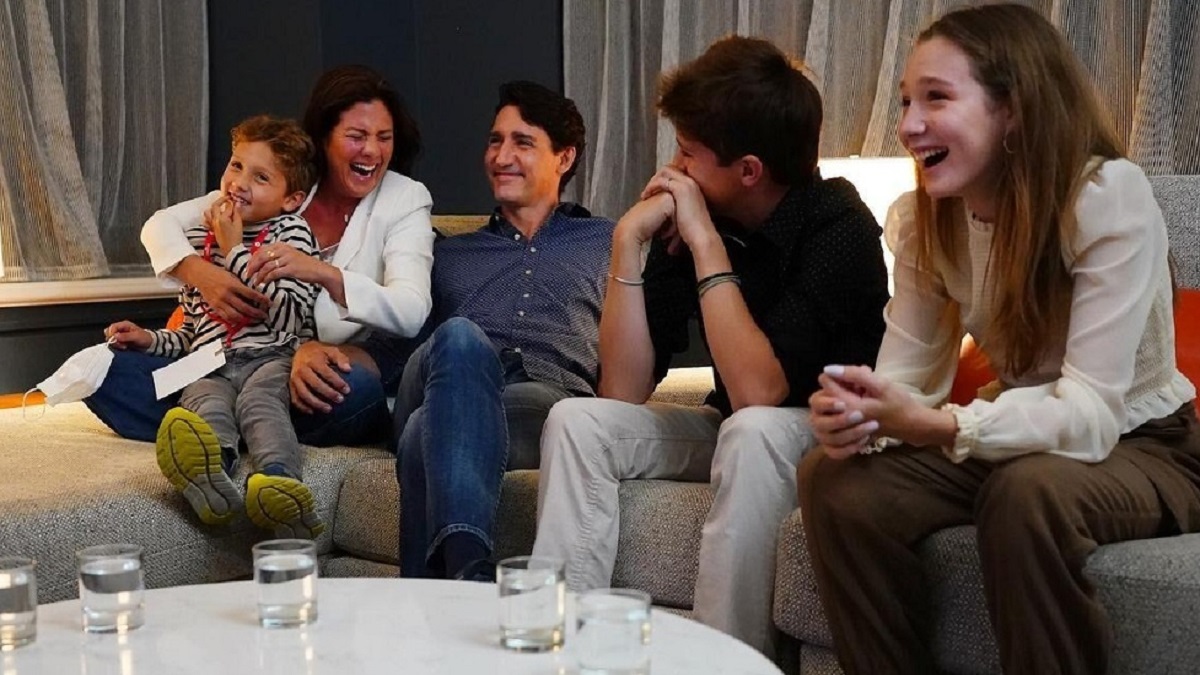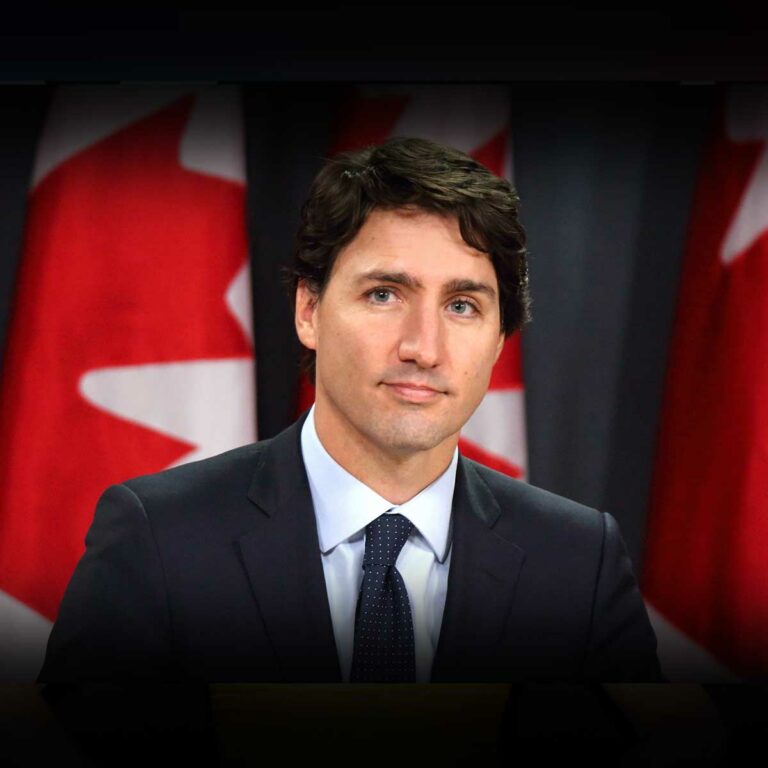When Justin Trudeau was elected as Canada's 23rd Prime Minister, the world took notice of his dynamic leadership and youthful energy. At the age of 43, Trudeau became one of the youngest leaders in Canadian history, marking a significant moment in the nation's political landscape. His election in 2015 signaled a shift towards progressive policies and a new era of governance. As we delve into the details of "Justin Trudeau age when elected," it becomes clear that his leadership style resonated with voters seeking fresh perspectives and innovative solutions to modern challenges.
Trudeau's rise to power was not just about his political acumen but also his ability to connect with younger generations. His commitment to climate change, gender equality, and multiculturalism set him apart from his predecessors. The "Justin Trudeau age when elected" narrative is not merely a fact but a reflection of how age and experience intersect in the realm of politics. Understanding this context sheds light on the broader implications of youthful leadership in contemporary democracies.
As we explore the "Justin Trudeau age when elected" phenomenon, it is essential to recognize the significance of his tenure and its impact on Canadian politics. His policies, public image, and leadership style have been analyzed extensively, providing valuable insights into the role of age in political leadership. This article aims to provide a comprehensive overview of his election, focusing on his age as a defining factor in his political journey.
Read also:Ben Habib Education A Comprehensive Guide To Unlocking Your Academic Potential
Biography of Justin Trudeau
Before delving into the specifics of Justin Trudeau's age at the time of his election, it is crucial to understand his background and personal journey. Born on December 25, 1971, in Ottawa, Ontario, Justin Pierre James Trudeau is the eldest son of the late Pierre Elliott Trudeau, who served as Canada's 15th Prime Minister. Growing up in a political family, Trudeau was exposed to the intricacies of governance from an early age.
| Full Name | Justin Pierre James Trudeau |
|---|---|
| Date of Birth | December 25, 1971 |
| Place of Birth | Ottawa, Ontario, Canada |
| Parents | Pierre Elliott Trudeau (Father), Margaret Sinclair (Mother) |
| Spouse | Sophie Grégoire Trudeau |
| Children | 3 (Hadrien, Ella-Grace, and Xavier) |
| Education | Bachelor of Arts in Literature (McGill University), Bachelor of Education (University of British Columbia) |
| Profession | Teacher, Politician |
Trudeau's educational background includes a Bachelor of Arts in Literature from McGill University and a Bachelor of Education from the University of British Columbia. Before entering politics, he worked as a teacher, which helped shape his communication skills and public engagement strategies. His transition from teaching to politics reflects his commitment to public service and advocacy for social justice.
What Was Justin Trudeau's Age When Elected?
The question of "What was Justin Trudeau's age when elected?" is pivotal in understanding his political journey. At the time of his election in 2015, Trudeau was 43 years old, making him one of the youngest Prime Ministers in Canadian history. This age factor contributed significantly to his appeal, as younger voters identified with his progressive ideals and forward-thinking approach.
Trudeau's election at the age of 43 challenged traditional perceptions of leadership, which often favor seasoned politicians with decades of experience. His ability to articulate complex issues in a relatable manner resonated with a broad spectrum of voters, particularly millennials and Gen Z. The "Justin Trudeau age when elected" narrative highlights the importance of diverse leadership in a rapidly changing world.
How Does Age Impact Political Leadership?
When considering the "Justin Trudeau age when elected," it is essential to examine how age influences political leadership. Age can be both an asset and a liability, depending on the context and the leader's ability to navigate challenges. Trudeau's youth brought energy and innovation to the table, but it also raised questions about his experience and readiness for the role.
Despite these concerns, Trudeau's leadership has been characterized by a willingness to embrace change and adapt to new circumstances. His approach to climate change, indigenous rights, and international relations reflects a modern perspective that aligns with global trends. The "Justin Trudeau age when elected" context underscores the evolving nature of political leadership in the 21st century.
Read also:Kim Jung Hyun A Rising Star In Korean Entertainment
What Are the Key Achievements of Justin Trudeau?
Since his election in 2015, Justin Trudeau has achieved several milestones that define his tenure as Prime Minister. One of his key accomplishments is the introduction of progressive policies aimed at addressing climate change, promoting gender equality, and supporting multiculturalism. These initiatives have positioned Canada as a global leader in social and environmental issues.
- Introduced the Paris Agreement on Climate Change
- Implemented measures to combat gender-based violence
- Advocated for indigenous rights and reconciliation
Trudeau's leadership style emphasizes collaboration and inclusivity, fostering a sense of unity among diverse communities. His commitment to these values has earned him recognition both domestically and internationally. The "Justin Trudeau age when elected" context plays a crucial role in shaping his policy priorities and long-term vision for Canada.
What Challenges Has Justin Trudeau Faced?
While Justin Trudeau's age at the time of his election contributed to his appeal, it also presented unique challenges. Critics have questioned his ability to handle complex issues such as economic inequality, healthcare reform, and housing affordability. Additionally, controversies surrounding ethics and accountability have occasionally overshadowed his achievements.
Despite these challenges, Trudeau has demonstrated resilience and adaptability in navigating difficult situations. His willingness to engage in dialogue and seek feedback from diverse stakeholders has helped him address concerns and implement effective solutions. The "Justin Trudeau age when elected" narrative highlights the importance of perseverance and learning from experience in political leadership.
Why Is Age a Defining Factor in Political Leadership?
When discussing the "Justin Trudeau age when elected," it is essential to consider why age is a defining factor in political leadership. Age can influence a leader's perspective, priorities, and approach to governance. Younger leaders often bring fresh ideas and innovative solutions to the table, while seasoned politicians rely on their extensive experience and networks.
Trudeau's election at the age of 43 exemplifies the potential of youthful leadership to drive positive change. His ability to connect with younger generations and address their concerns has strengthened his position as a progressive leader. The "Justin Trudeau age when elected" context underscores the importance of balancing age and experience in the pursuit of effective governance.
Table of Contents
- Biography of Justin Trudeau
- What Was Justin Trudeau's Age When Elected?
- How Does Age Impact Political Leadership?
- What Are the Key Achievements of Justin Trudeau?
- What Challenges Has Justin Trudeau Faced?
- Why Is Age a Defining Factor in Political Leadership?
- What Lessons Can We Learn from Justin Trudeau's Leadership?
- How Has Justin Trudeau's Age Influenced His Policies?
- What Is the Future of Youthful Leadership in Politics?
- How Does the "Justin Trudeau Age When Elected" Context Shape Canadian Politics?
What Lessons Can We Learn from Justin Trudeau's Leadership?
The "Justin Trudeau age when elected" context offers valuable lessons about leadership, governance, and the role of age in politics. One of the key takeaways is the importance of embracing diversity and inclusivity in decision-making processes. Trudeau's leadership style emphasizes collaboration and empathy, which are essential qualities for effective governance.
Additionally, the "Justin Trudeau age when elected" narrative highlights the significance of adapting to changing circumstances and learning from experience. Leaders who are open to new ideas and willing to evolve can make a lasting impact on their communities and nations. These lessons are particularly relevant in today's rapidly changing world, where innovation and flexibility are key to success.
How Has Justin Trudeau's Age Influenced His Policies?
The "Justin Trudeau age when elected" context has influenced his policies in several ways. His youthful energy and progressive mindset have shaped his approach to issues such as climate change, indigenous rights, and social justice. These policies reflect a forward-thinking perspective that aligns with the values of younger generations.
Trudeau's age at the time of his election also contributed to his ability to connect with diverse communities and address their concerns. His commitment to inclusivity and representation has strengthened Canada's position as a multicultural and progressive nation. The "Justin Trudeau age when elected" narrative underscores the importance of age as a factor in shaping policy priorities and governance strategies.
What Is the Future of Youthful Leadership in Politics?
The "Justin Trudeau age when elected" phenomenon highlights the growing trend of youthful leadership in politics. As younger generations become more engaged in civic affairs, the demand for leaders who reflect their values and priorities is likely to increase. This shift presents both opportunities and challenges for political systems around the world.
Embracing youthful leadership requires a willingness to adapt to new ideas and perspectives while maintaining a commitment to experience and expertise. The "Justin Trudeau age when elected" context serves as a reminder that age is just one factor in determining a leader's effectiveness. Ultimately, the success of youthful leadership depends on the ability to balance innovation with accountability and responsibility.
How Does the "Justin Trudeau Age When Elected" Context Shape Canadian Politics?
The "Justin Trudeau age when elected" context has had a profound impact on Canadian politics, influencing the direction of the Liberal Party and the nation as a whole. Trudeau's election marked a departure from traditional leadership styles, emphasizing inclusivity, collaboration, and innovation. These values have shaped the political landscape in Canada, encouraging other parties to adopt similar approaches.
As the "Justin Trudeau age when elected" narrative continues to evolve, it is essential to recognize its implications for the future of Canadian politics. The success of youthful leadership in driving positive change depends on the ability to engage diverse communities and address their concerns effectively. The "Justin Trudeau age when elected" context serves as a testament to the transformative power of age and experience in shaping the political landscape.


